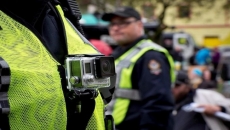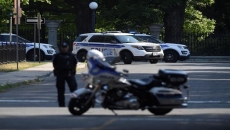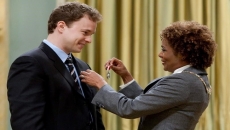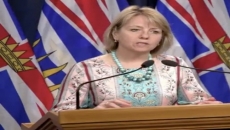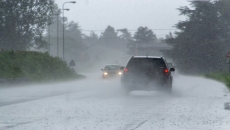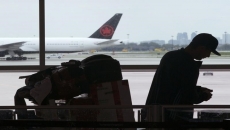Manitoba judge sentencing a young man for beating his own mother to death has denounced systemic issues the judge says leave Indigenous people at risk.
"The ruin of the First Nations and peoples of Canada is not just statistics. As seen here, it is real pain," Justice Chris Martin said in a written decision delivered July 10.
Anthony McKay was sentenced to four years after pleading guilty to manslaughter in the death of his mother, Shirley McKay. He faces two years behind bars, after receiving credit for time already served, and will be subject to three years of supervised probation after that.
"As a human, Mrs. McKay deserved better. And, like anyone born in this bountiful country, her son, her killer, deserved a better start, a better chance, in life," Martin wrote.
The judge said the killing on the Berens River First Nation, about 300 kilometres north of Winnipeg, was a "calamity of almost 150 years of government policy, actions and inactions affecting the Indigenous community."
Anthony McKay, who was 21 at the time, went to his mother's home after a night of drinking on June 22, 2018.
Court was told there was blood everywhere when a cousin came over about 8 a.m. The cousin found Shirley McKay unconscious and badly beaten. Her son has said he doesn't know why he viciously beat her.
The woman was taken to a nursing station before being transported to a hospital in Winnipeg. Her son visited her in hospital daily and was overheard at her bedside sobbing and apologizing.
Court heard he was confronted by a stepbrother and admitted that he had hurt his mother.
Shirley McKay died that September. Her son was arrested the following month.
"She did not recover and died months later, another victim in a mass of slain Aboriginal women," Martin said. "He pled guilty to manslaughter, joining an appalling line of young Aboriginals ending up in prison."
Crown prosecutors were asking for a seven-year sentence in a federal penitentiary. The defence asked for two years behind bars plus the probation so that McKay could have access to programming available in provincial custody.
The judge pointed to impacts of colonization, the pass system which restricted Indigenous Peoples' movement, residential schools and the '60s Scoop in his sentencing.
"It is well accepted that the government's role, since the early days of dealing with First Nations peoples, has had the effect of isolating, infantilizing, marginalizing, and traumatizing Indigenous societies like the Ojibwa (or Anishinaabe) of Berens River," Martin wrote.
"Mr. McKay is a person shaped by a system historically designed to 'take the Indian out of the Indian.'"
Reports provided to the judge on McKay's background said he has partial fetal alcohol syndrome.
One of 13 siblings, he spent most of his time in foster homes on the First Nation or more often in Winnipeg. His parents struggled with alcohol and sniffing substances, and McKay followed a similar path starting when he was 13. His father died in 2010.
McKay was neglected and not cared for, files from child and family services said. He asked to become a permanent ward of child welfare in 2013 because he didn't feel safe with his family.
Martin said McKay's troubled upbringing doesn't excuse his behaviour, but does help explain why he is who he is.
Occasionally it is incumbent on a judge to underscore systemic issues, he said, adding Indigenous people are disproportionately affected by serious crime and disproportionately incarcerated.
"Like so many other cases, this case is troubling, not only for its specific facts, but because it reminds that core issues affecting many in the Indigenous population are not really being addressed sufficiently or urgently enough," Martin wrote.
"Many in this and the next generation of Indigenous people are at risk."

